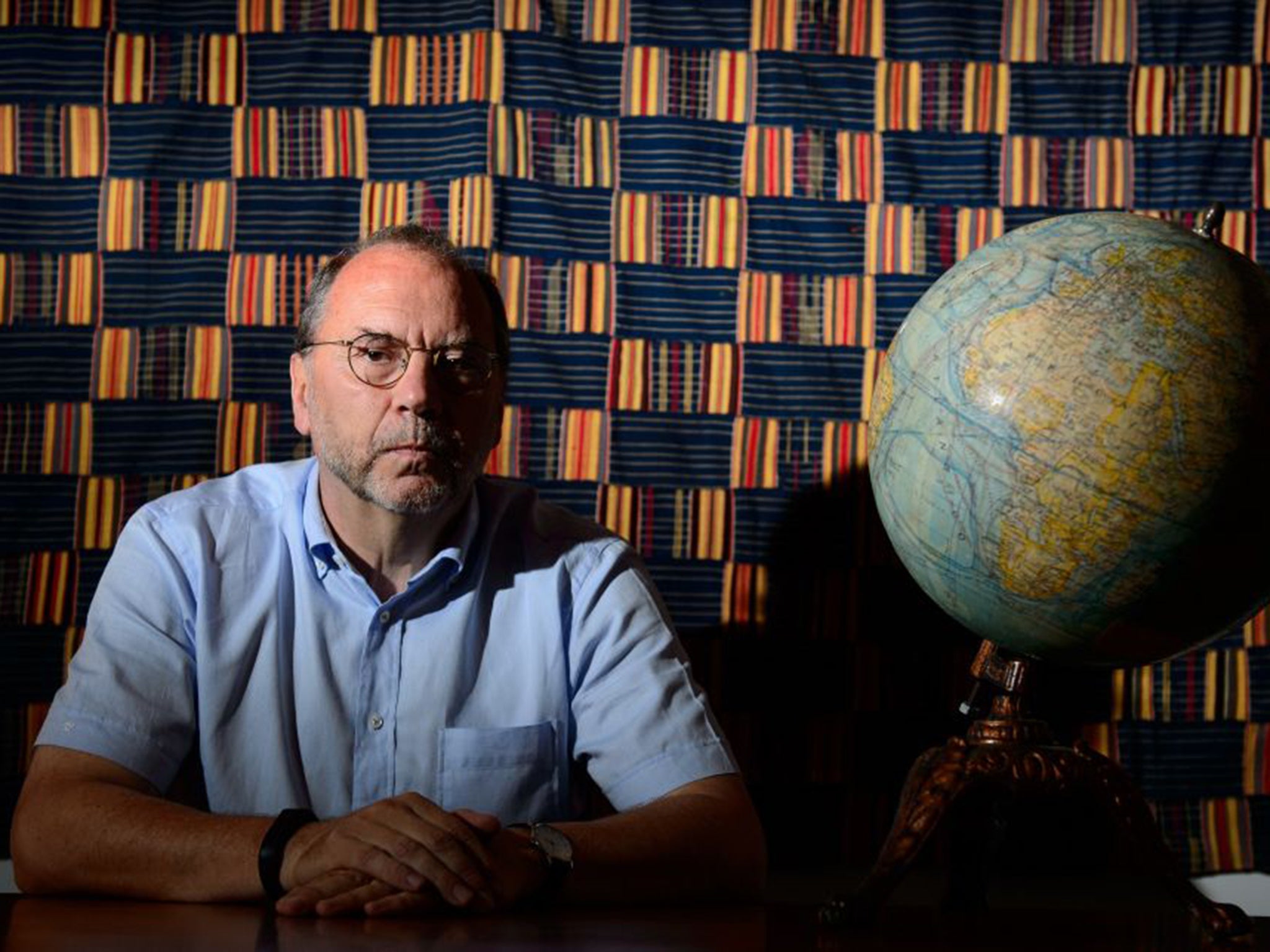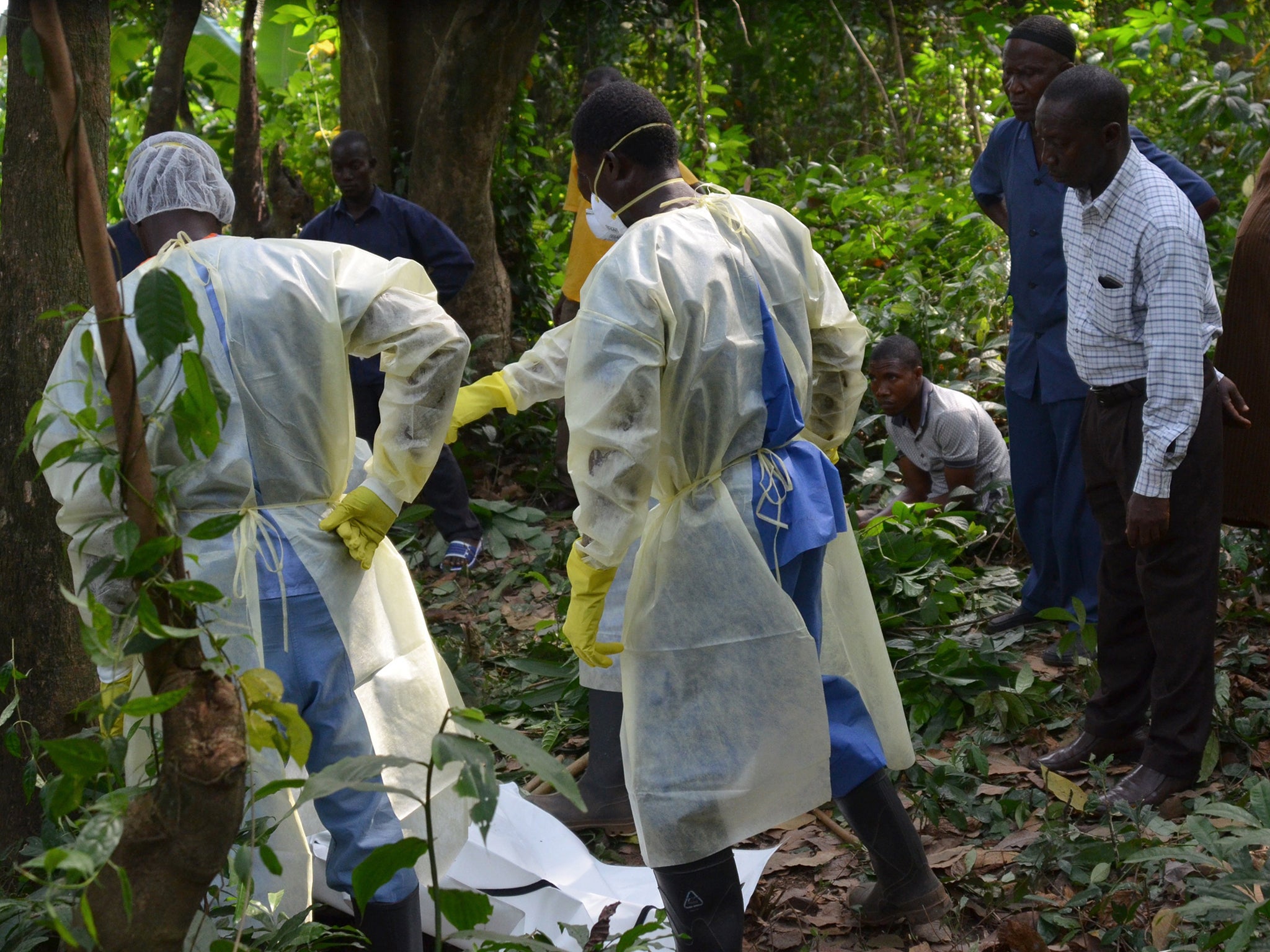Ebola outbreak: The world has eased up too soon on the battle with the virus, says professor who helped discover it
Peter Piot believes 'transmission chains' are not being traced

The end of the Ebola epidemic in West Africa may still be some way off, and the world must prepare for future outbreaks, Professor Peter Piot, the co-discoverer of the virus, has said.
The microbiologist, who helped first identify Ebola in 1976, predicted that the virus would spring up again in West or Central Africa and urged continuing investment in developing vaccines and treatments, even if case numbers continue to fall.
His warning comes as Liberian health officials yesterday launched an inquiry into how its first Ebola case in weeks – a 44-year-old woman – contracted the disease. The West African nation has seen the largest number of deaths during the outbreak, with more than 4,200 out of a total that tops 10,000 across the region. Officials said the new patient, who says she has not travelled recently to the neighbouring infected countries of Sierra Leone and Guinea, did not appear to be linked to any of the people on an Ebola contacts list. One theory being investigated is the woman was infected after having sex with a survivor of the virus.
Tomorrow marks a year since the World Health Organisation confirmed that the haemorrhagic fever killing people in remote parts of Guinea was being caused by the Ebola virus. Since then, more than 10,200 have died from the disease, which has devastated already impoverished communities in Guinea, Sierra Leone and Liberia. Thousands more are likely to have died from other illnesses or in childbirth, because of the breakdown of healthcare systems.
While infection rates have fallen from their peak levels, following a major medico-military response spearheaded by Britain and the US, well over a hundred new cases are still being reported each week.
Professor Piot, who is now director of the London School of Hygiene and Tropical Medicine, said that while West Africa had reached “the beginning of the end” of the outbreak, it was impossible to say how long it might take for all three countries to be declared Ebola-free.

He said patients in Guinea and Sierra Leone were still coming to treatment centres “out of the blue”, suggesting that there are “underground” chains of transmission not being picked up by the authorities.
“Nobody knows how long the end will be,” he added. “You can say it’s the last mile, but the last mile sometimes can take a hundred miles, as we’ve seen with polio eradication, for example.”
Healthcare workers would have to “go into every single village to make sure there are no cases”, he said.
In Guinea, where there were 95 new cases in the second week of March, the highest weekly total so far in 2015, mistrust of health workers is still a problem, he added. “There are still, nearly every day, incidents of violence against healthcare workers, against people who are trying to organise safe burials and so on, and that continues.”
The Ebola virus, which is believed to have originated in fruit bats, was first identified by a team of scientists, including Professor Piot, in the Central African Democratic Republic of Congo (then Zaire). Since then, a number of sporadic outbreaks have occurred in Central Africa but on a much smaller scale compared to the West African epidemic that took most experts by surprise.
Professor Piot said research carried out at Oxford University had mapped the spread of the fruit bats that carry the disease, indicating that any future outbreak would most likely occur in Central or West Africa.

“All previous epidemics, except this one, occurred in Central Africa,” he said. “It’s likely it will pop up again there, but now also in West Africa; maybe because there’s a population explosion, there may be more intense contacts with these bats. But it’s likely that it will happen again.
“That’s why it is still worthwhile to invest in vaccine and therapeutic development, even if cases are going down in West Africa.”
Several potential Ebola vaccines are currently in development, with two now entering clinical trials in humans. Trials of a range of possible Ebola treatments are still in the early phases.
Sierra Leone, which has seen the most cases of Ebola over the course of the outbreak, announced last week it would be enforcing a three-day lockdown across the capital, Freetown, and in the north of the country, in a bid to crack down on the remaining chains of transmission. A similar curfew was enforced in September. The next one will mean around 2.5 million people are confined to their homes between 27-29 March.
Join our commenting forum
Join thought-provoking conversations, follow other Independent readers and see their replies
Comments